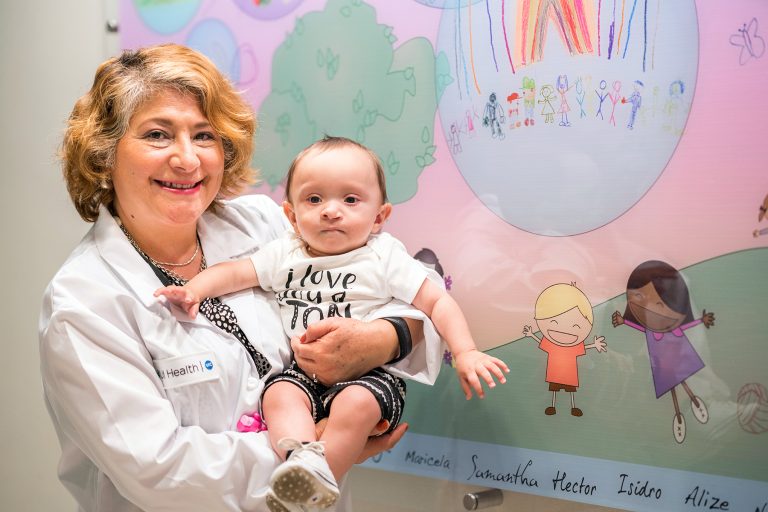Craniofacial center to celebrate 70 years

Introduction
The UI Health Craniofacial Center will celebrate its 70th anniversary this year. To mark the occasion, the center will host a multidisciplinary patient care symposium Sept. 6 at UIC Student Center West.
The symposium will provide a snapshot of past, present and future state-of-the-art care for patients with clefts and other craniofacial conditions, and it will focus on the importance of team-based care.
“The idea to provide multidisciplinary care in one location under the same roof was the keystone of the foundation of the craniofacial center when it first began in 1949,” said Dr. Mimis Cohen, director of the craniofacial center. “From day one, we have been committed to team-based, interdisciplinary care under one roof.”
“The center has long been the perfect team environment where medical and dental specialists and allied health professionals all work together for an improved quality of life for our patients,” said Dr. David Reisberg, a maxillofacial prosthodontist and professor of surgery who directed the center prior to Cohen.
Cohen said the center has about 5,000 active patients — that adds up to more than 8,000 patient appointments each year. Patients are infants, children and adults born with facial differences. In addition, the center treats patients who require head and neck reconstruction after cancer, or those who have suffered traumatic injuries or burns requiring complex reconstructive, corrective or functional therapy to their head and neck. Patients are not only provided with functional and aesthetic therapy, but also extensive psychological support.
“We are with most of our patients for many years. For some patients, their whole life,” said Cohen, who is also professor and chief of plastic, reconstructive and cosmetic surgery at UIC.
He estimates that most patients, like those born with a complete cleft lip and palate, will undergo about five or six procedures. Care may include reconstructive surgery, braces, speech therapy and tubes in the ears, for example. There are other patients with more major differences or rare conditions, like Treacher Collins syndrome or craniosynostosis, for example, who may require more than 20 different procedures.
“These numbers show why coordinated, multidisciplinary care is so important for our patients,” Cohen said.
More information about the symposium, which will include information about the history of the center and its establishment by Dr. Sam Pruzansky in 1949, is available online.
Contact
Jacqueline Carey
312-996-8277
jmcarey@uic.edu
twitter.com/JCareyUIC